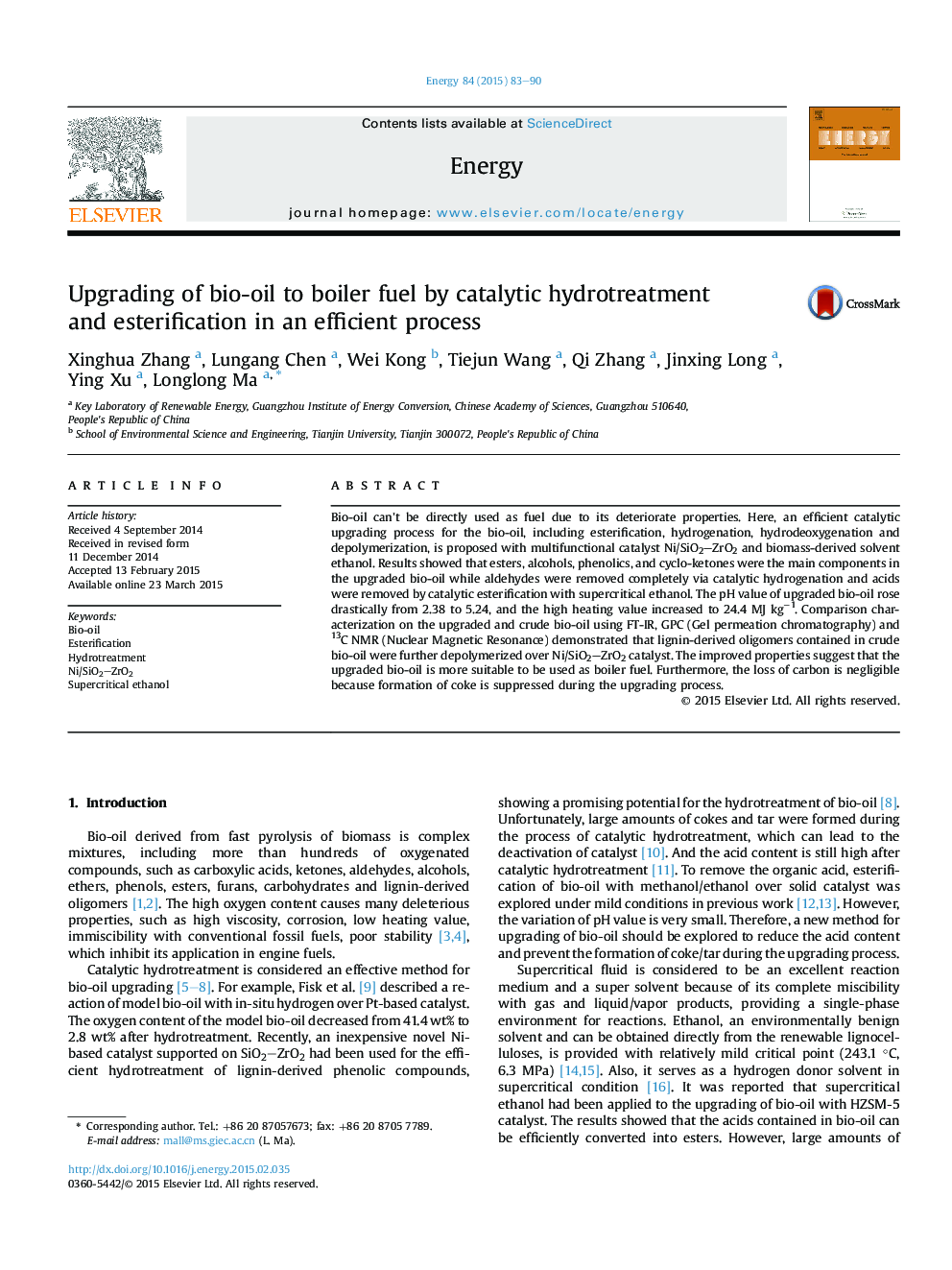| Article ID | Journal | Published Year | Pages | File Type |
|---|---|---|---|---|
| 1732289 | Energy | 2015 | 8 Pages |
•Acid can be converted via catalytic esterification in supercritical ethanol.•Aldehydes can be removed completely during the upgrading process.•Lignin-derived oligomers were further depolymerized during the upgrading process.•Formation of coke is effectively inhibited during the upgrading process.
Bio-oil can't be directly used as fuel due to its deteriorate properties. Here, an efficient catalytic upgrading process for the bio-oil, including esterification, hydrogenation, hydrodeoxygenation and depolymerization, is proposed with multifunctional catalyst Ni/SiO2–ZrO2 and biomass-derived solvent ethanol. Results showed that esters, alcohols, phenolics, and cyclo-ketones were the main components in the upgraded bio-oil while aldehydes were removed completely via catalytic hydrogenation and acids were removed by catalytic esterification with supercritical ethanol. The pH value of upgraded bio-oil rose drastically from 2.38 to 5.24, and the high heating value increased to 24.4 MJ kg−1. Comparison characterization on the upgraded and crude bio-oil using FT-IR, GPC (Gel permeation chromatography) and 13C NMR (Nuclear Magnetic Resonance) demonstrated that lignin-derived oligomers contained in crude bio-oil were further depolymerized over Ni/SiO2–ZrO2 catalyst. The improved properties suggest that the upgraded bio-oil is more suitable to be used as boiler fuel. Furthermore, the loss of carbon is negligible because formation of coke is suppressed during the upgrading process.
